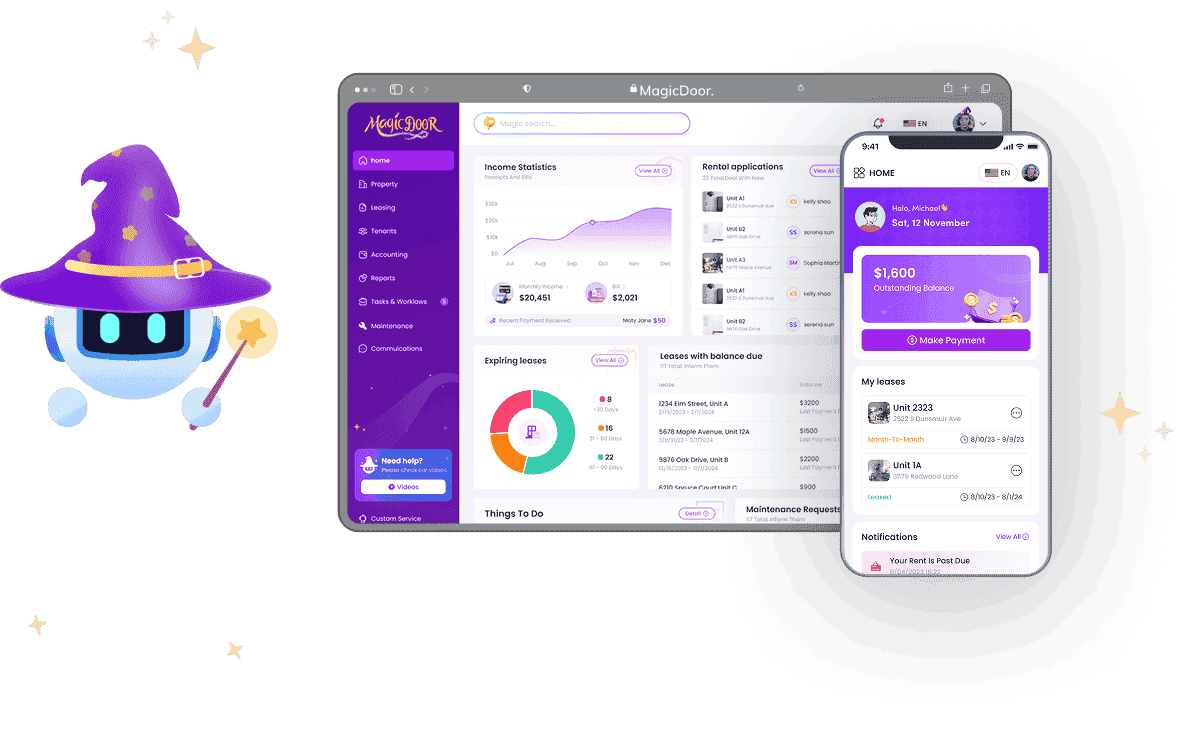Managing commercial properties at scale is complex, lease terms, compliance, tenant expectations, and nonstop maintenance coordination.
The right software turns scattered workflows into simple, automated systems.
From lease tracking to financial reporting, modern platforms help property managers run operations more efficiently.
This guide breaks down the best commercial property management software in 2025, key features to look for, and how to pick the right fit based on your portfolio needs.
What is Commercial Property Management Software?
Commercial property management software is a specialized system designed to help property management teams manage office buildings, retail spaces, industrial campuses, and mixed-use commercial portfolios in one intuitive platform.
Commercial management software unifies lease data, tenant communication, maintenance requests, financial tools, and operational workflows. It offers centralized visibility over lease terms, rent collection, tenant satisfaction efforts, and asset performance tracking for commercial property managers.
Ideal platforms provide features like:
- Lease management tailored to commercial terms (e.g., CAM charges, NNN leases)
- Maintenance scheduling and service requests with vendor tracking
- Financial management, including detailed reports, variance analysis, and real-time dashboards
- Tenant portals for communication, work orders, and online payments
Commercial tools focus on larger-scale operations and advanced reporting, letting teams compare occupancy across industrial properties, track retail lease cycles, and monitor asset performance across entire portfolios.
While residential software may handle rent distribution or background checks, the right commercial tool goes deeper: integration capabilities with ERP systems, built-in automation, and an intuitive interface for a high volume of leases and properties.
What to Look For in Commercial Landlord Software
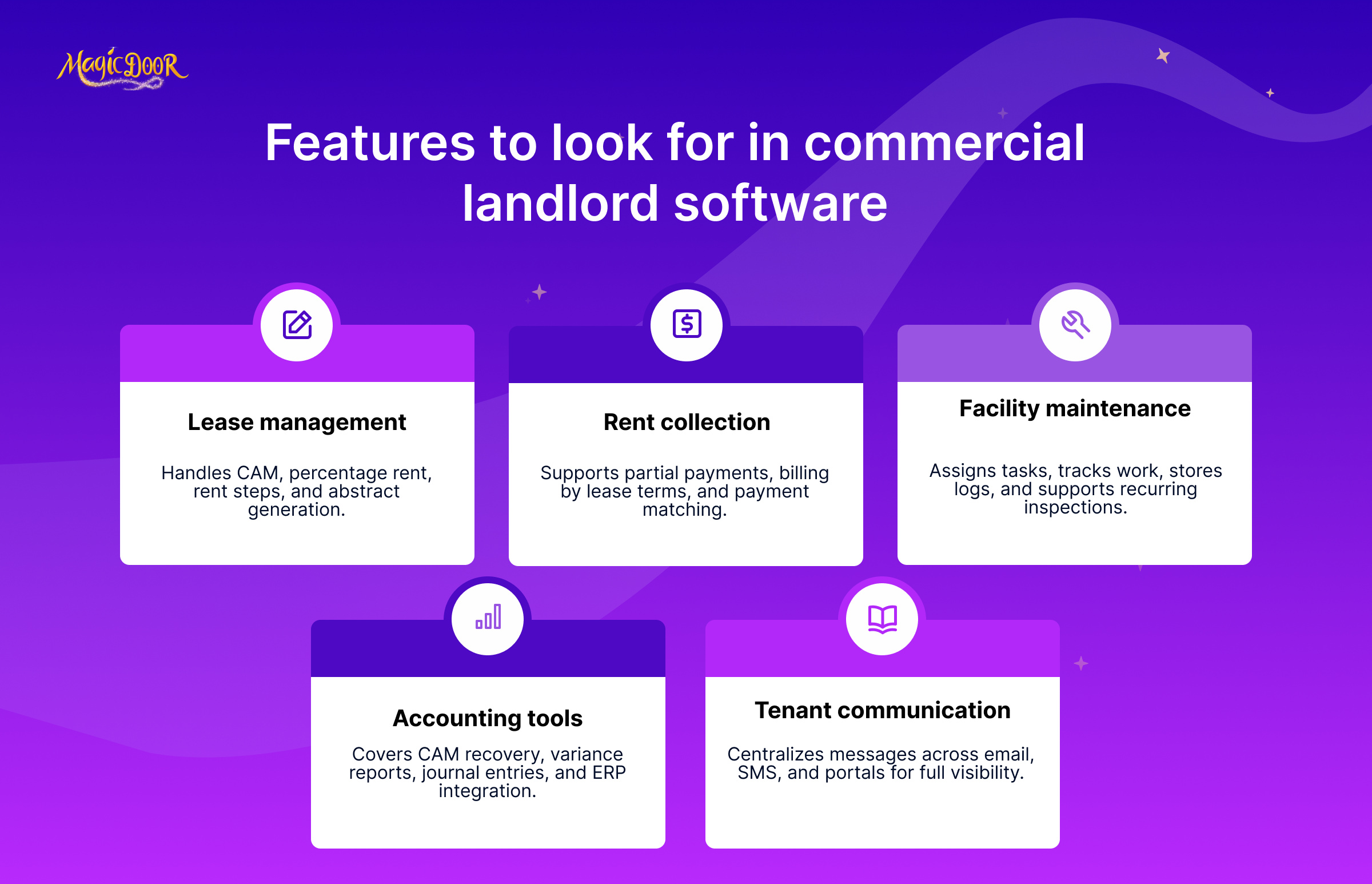
Lease Management Software for Commercial Properties
Commercial lease terms differ from residential ones. You need a platform that handles common area maintenance (CAM) reconciliation, percentage rent, and tiered agreements. They centralize lease data, let you generate lease abstracts, and track critical dates like renewal and rent escalations.
Commercial systems support the automation of complex workflows. When a lease approaches expiration, alerts let your team act. Built-in reporting shows variance analysis, rent steps, and export schedule options.
You get a clear view of your commercial property portfolio, which helps you compare asset performance and support data-driven decisions.
Rent Collection Tools for Commercial Buildings
Rent collection in commercial settings tends to be more complex: tenants may pay via ACH, wire, or check in amounts tied to lease schedules. Your software must support online payments, partial payments based on CAM reconciliations, and a range of billing methods.
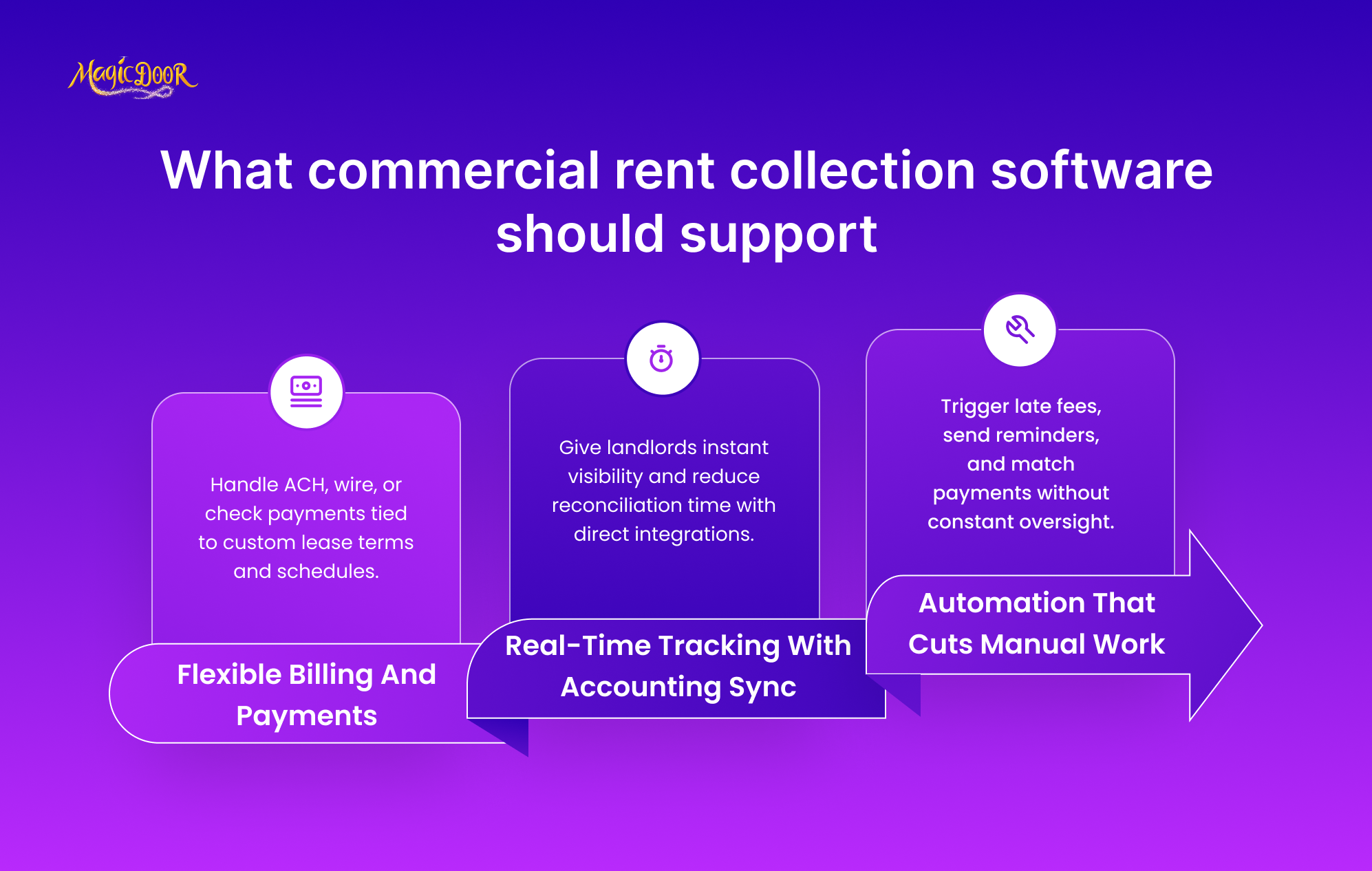
Best tools integrate directly with accounting systems, giving landlords real‑time visibility over billing status and reducing manual reconciliation work. Some systems offer tenant portals where occupants can view invoices, pay electronically, and submit maintenance requests tied to their unit.
Automation is a game-changer here.
Automated rent reminders, late fee logic, and payment matching cut down overhead. The ideal platform supports multiple commercial buildings in one place and delivers reporting dashboards with key financial data.
Facility Management & Maintenance Software
Managing commercial properties involves ongoing upkeep, usually for multiple sites. Look for facilities management tools that allow teams to assign, track, and complete maintenance requests without relying on spreadsheets or email chains.
Modern property management software should support recurring tasks like property inspections, HVAC servicing, and elevator certifications. Maintenance logs, photos, and technician notes should be saved centrally and connected to the affected unit or asset.
That’s critical for detailed financial management and auditing.
Maintenance scheduling should also link to tenant communication features, so issues are logged, acknowledged, and resolved transparently, improving visibility and helping property managers avoid duplicate requests or dropped work orders.
Commercial Real Estate Accounting Tools
Accounting is more than rent collection; it’s lease-driven cash flow modeling, expense budgeting, and real-time reporting.
Commercial-focused platforms allow commercial property managers to reconcile income by lease, building, or portfolio and support task management through scheduled entries and journal automation.
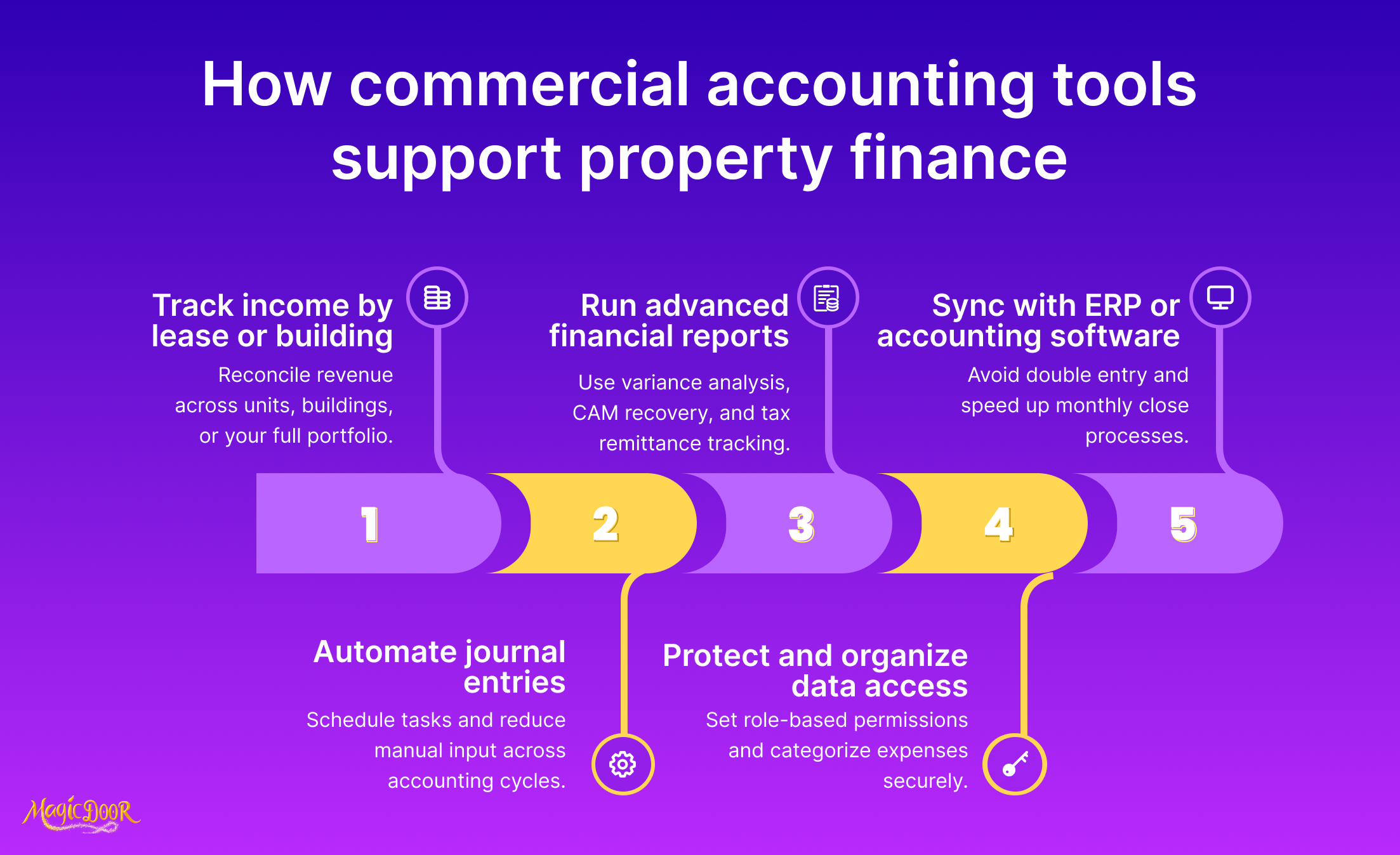
Your team needs access to basic reporting functionalities and deeper tools like variance analysis, tax remittance tracking, and CAM recovery. Bank feeds, expense categories, and role-based access simplify workflows while protecting sensitive financial data.
Integration with accounting software or ERPs avoids duplicate entry and helps your team close faster.
Commercial Tenant Communication Platforms
Tenants expect prompt, documented updates. Software must centralize all messaging into one dashboard, combining email, SMS, and in-app notes. That lets property managers maintain a complete history of touchpoints by tenant or unit.
Look for solutions that support mass announcements, two-way messaging, and automated responses.
Paired with tenant portals, this improves clarity around rent status, maintenance scheduling, and upcoming building work, also reducing inbound noise across channels.
Strong tenant communication tools contribute to higher tenant retention, especially in mixed-use or office buildings where service expectations run high. And for teams managing both commercial and residential property management, unified inboxes simplify operations across the entire portfolio.
Top 18 Commercial Property Management Software Tools (Updated 2025)
1. MagicDoor

MagicDoor is a modern commercial property management software for landlords and property managers managing small to large-sized portfolios.
Known for its clean interface, agentic AI automation, and zero monthly fees, MagicDoor is quickly becoming a go-to option for those looking to simplify operations without sacrificing functionality. It helps manage maintenance requests, streamline lease management, and support tenants across office buildings, retail spaces, and mixed-use assets.
Its features include:
- Automated rent collection with reminders and payment tracking
- Digital lease management, including renewals and document storage
- Maintenance request tracking with real-time status updates
- Tenant communication tools for centralized messaging
- Flexible reporting dashboards for financial and property insights
What makes MagicDoor stand out is its focus on user experience and affordability. It’s intentionally built to cut complexity and speed up daily tasks, making it a smart choice for commercial property managers who need results without a steep learning curve or bloated feature sets.
For property managers who value speed, clarity, and control over their entire portfolio, MagicDoor offers a lightweight but complete software solution that delivers operational efficiency and tenant satisfaction.
2. MRI Property Management
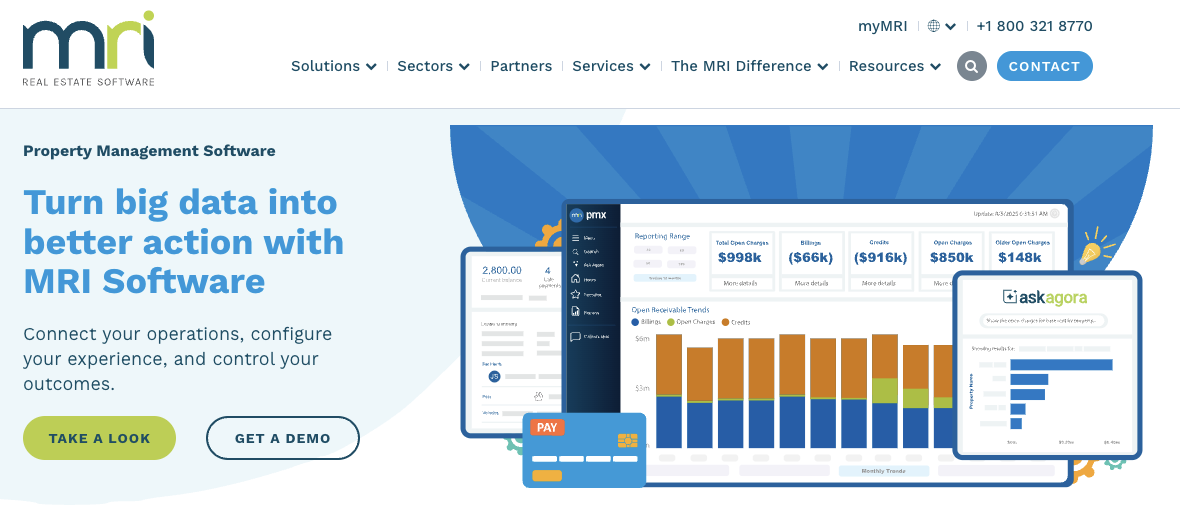
MRI Software is one of the longest-standing names in commercial property management software, known for its open and modular platform architecture. The tool supports real estate portfolios across office buildings, retail centers, and mixed-use spaces.
MRI covers many asset types and offers:
- Advanced lease abstraction and financial modeling
- Facilities management tools with maintenance scheduling
- Tenant billing, recovery reconciliations, and commercial lease management
- Deep integrations with third-party tools for financial reporting and business intelligence
MRI stands out for its configurability and ability to serve enterprise property managers with large, complex commercial portfolios.
3. Yardi Voyager
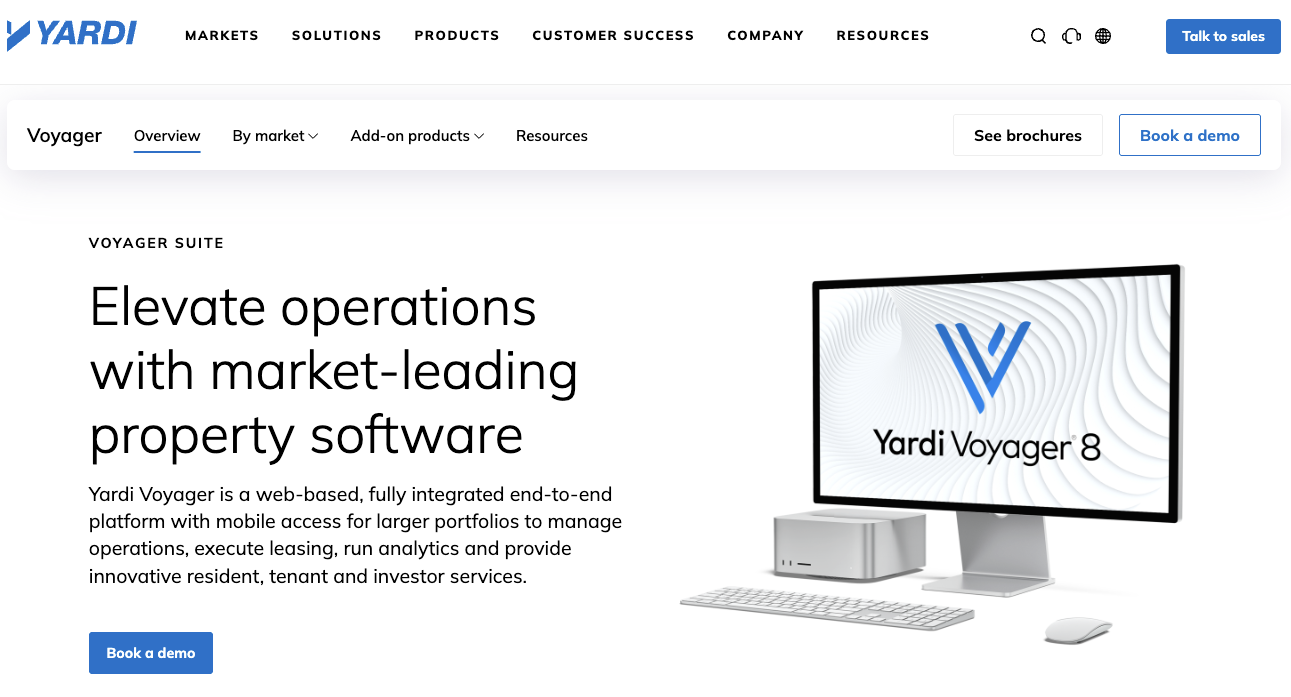
Yardi Voyager is an enterprise-grade commercial property management software platform built for large real estate firms. It combines lease management, accounting tools, and tenant services into one centralized system.
Features:
- End-to-end lease lifecycle tracking for commercial leases
- Real-time financial reporting with customizable dashboards
- Maintenance request monitoring and asset management
- Built-in compliance, vendor management, and procurement modules
Yardi Voyager offers a comprehensive suite for property managers with high-volume commercial portfolios. Its strength lies in deep accounting capabilities and integration with Yardi’s ecosystem, including energy monitoring and facilities management extensions.
4. Buildium

Buildium is a property management software tool originally designed for residential use, but it has expanded its features to support smaller-scale commercial portfolios as well.
Features include:
- Electronic lease management and digital signature workflows
- Maintenance tracking with tenant communication integration
- Financial reporting for rent collection and owner statements
- Mobile app support for remote task management
While not specifically built for commercial real estate, Buildium appeals to property managers who manage mixed residential and light commercial units. Its intuitive interface and ease of use stand out, especially for smaller teams without in-house tech support.
5. RealPage
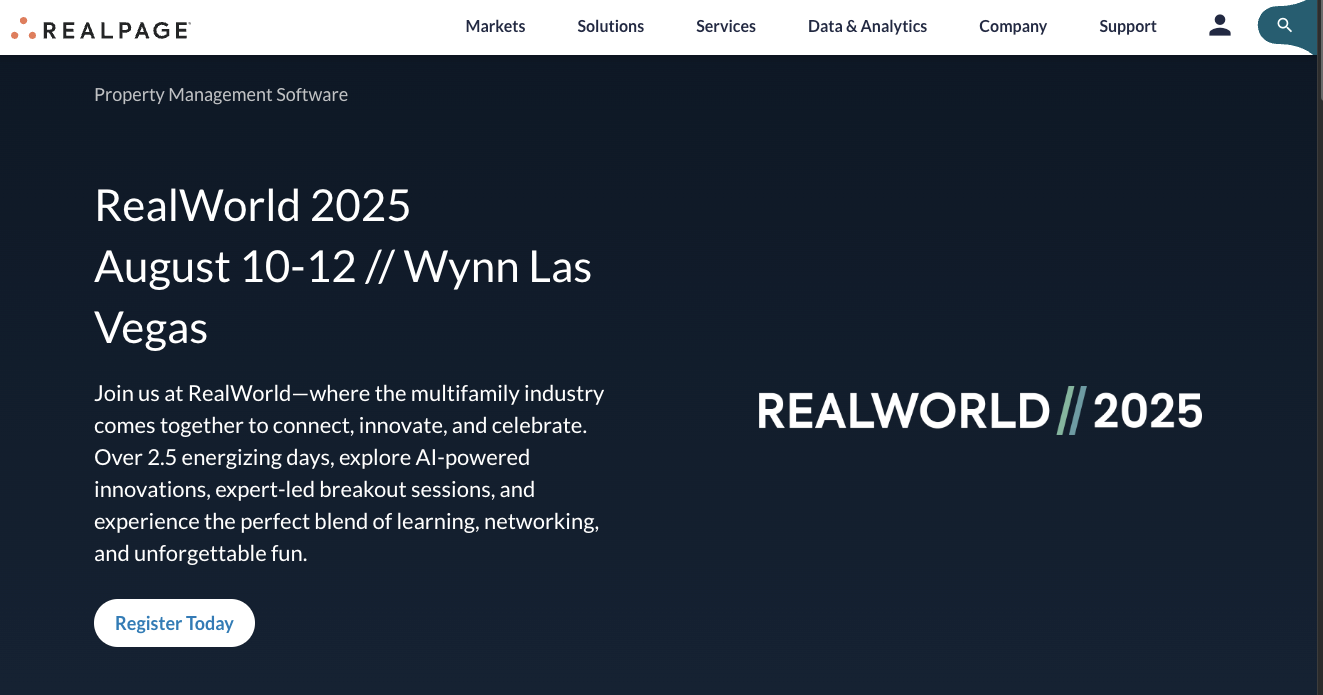
RealPage is a widely adopted commercial property management software used by large portfolios with diverse asset classes. It's made for institutional landlords and REITs that need scale, automation, and deep financial controls.
Features include:
- Centralized lease management with lease abstraction support
- Forecasting and budgeting tools tailored for commercial portfolios
- Real-time analytics dashboards for performance tracking
- Facility and maintenance request automation with vendor tracking
RealPage is a strong option for enterprise-level property managers looking for robust real estate software that ties into asset management and capital planning tools.
6. Fyxt
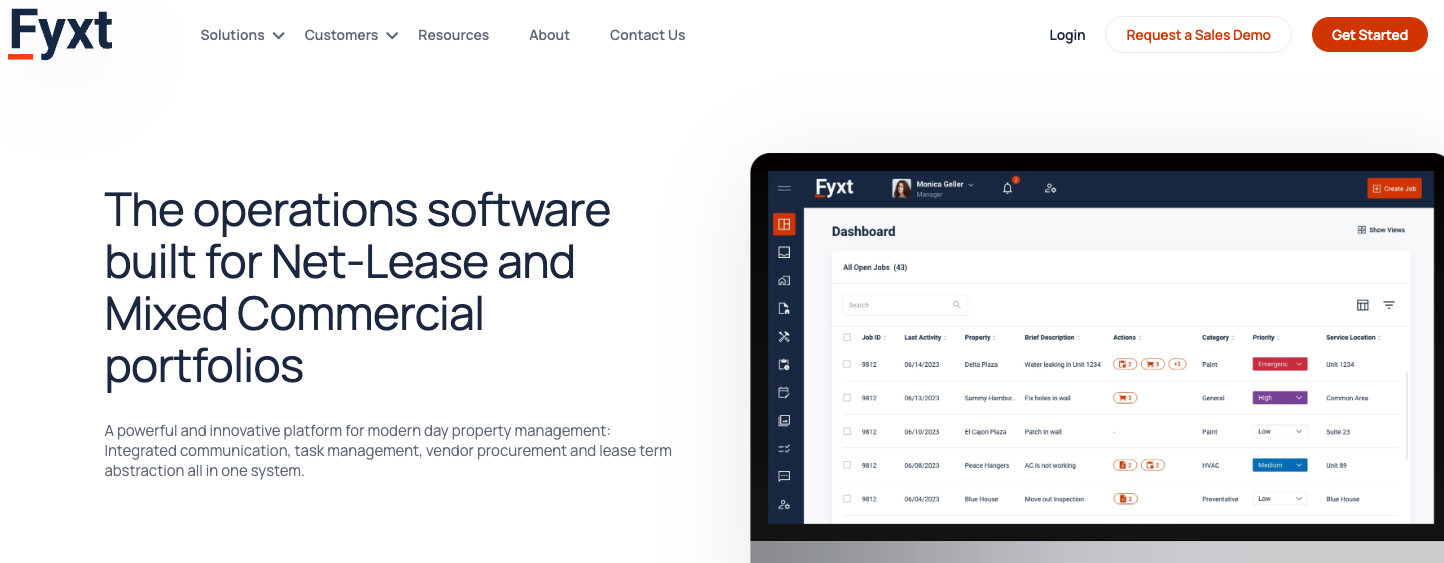
Fyxt facilitates maintenance, operations, and tenant coordination for commercial landlords. Far from traditional platforms, it weighs in on the day-to-day efficiency of managing commercial real estate assets.
Features include:
- Mobile-first interface for tracking repairs and vendor tasks
- Tenant service request system with automated workflows
- Real-time maintenance updates across commercial portfolios
- Flexible permissions and access for different property stakeholders
This software tool is designed for property managers prioritizing operational efficiency and needing a lightweight interface for on-the-ground teams and tenants.
7. DoorLoop
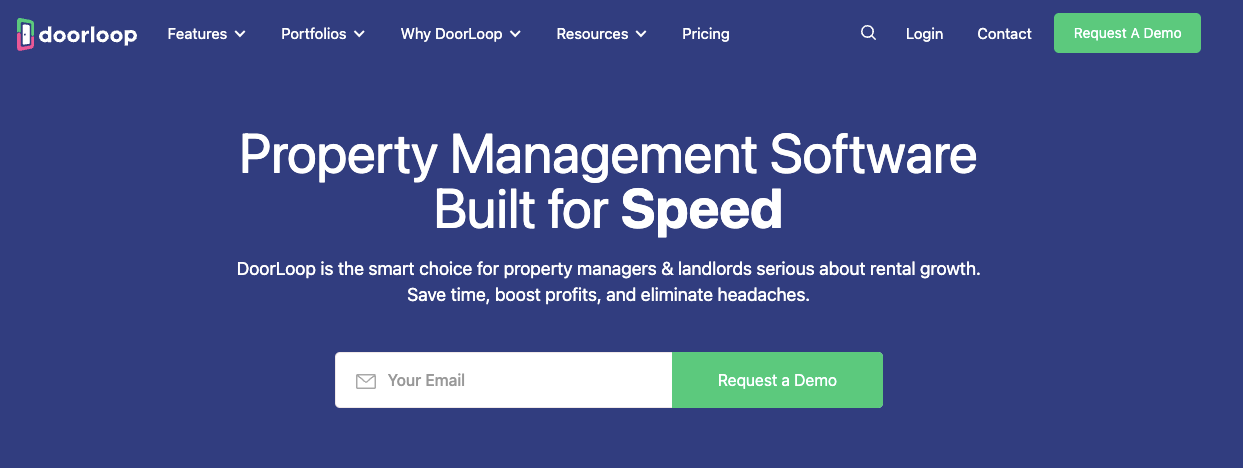
DoorLoop offers a simplified, all-in-one solution for landlords managing residential and commercial properties. It’s especially popular among mid-size teams seeking a clean user experience and responsive support.
Features include:
- Lease and tenant management for both commercial and residential units
- Automated rent reminders and online payment collection
- Maintenance tracking with tenant portals
- Financial reporting and owner statement generation
DoorLoop stands out for its usability. Its intuitive interface helps property managers get started quickly without advanced training while offering the key features needed for commercial property management.
8. Re-Leased
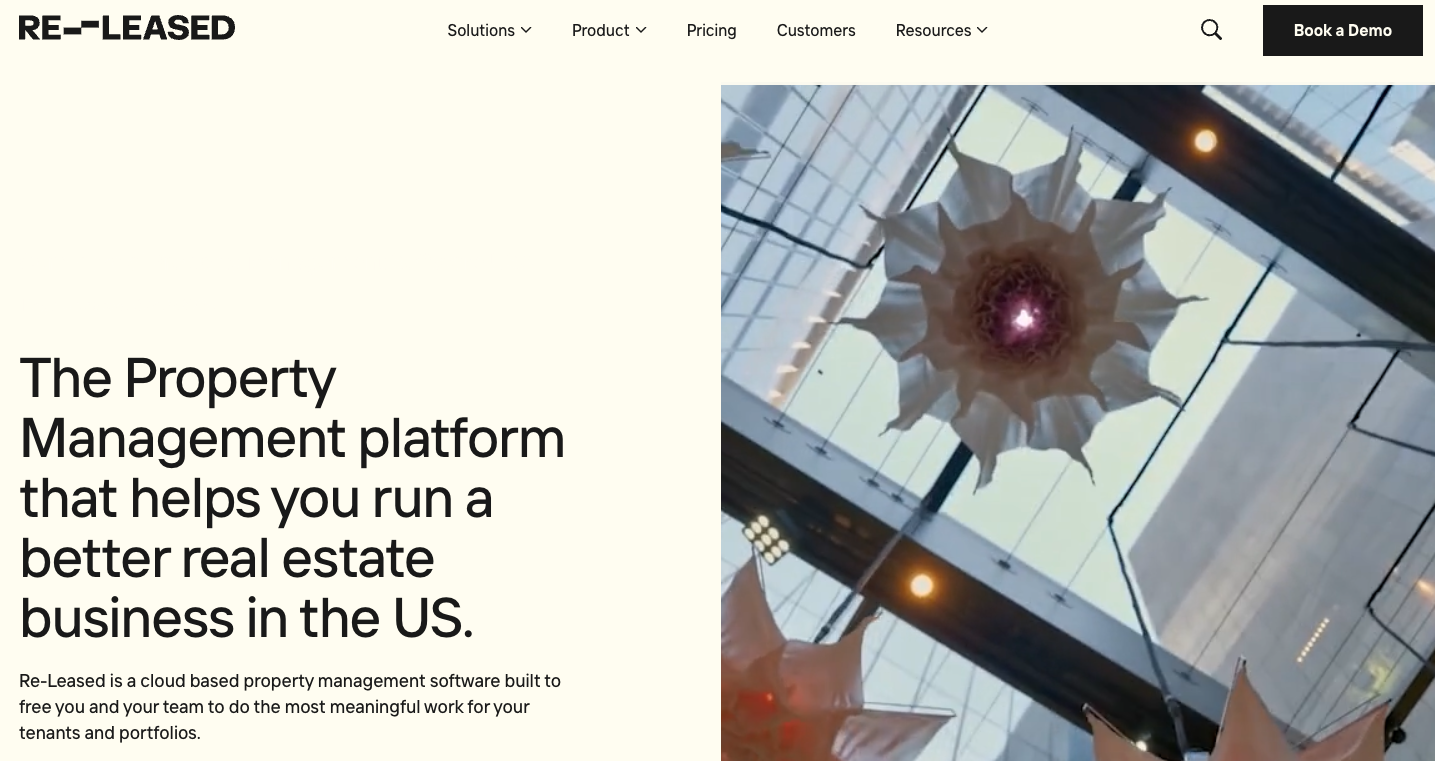
Re-Leased is a cloud-based commercial property management software tool for office buildings, industrial properties, and retail portfolios. Its strength lies in automating recurring admin tasks and providing clear portfolio management.
Features include:
- Commercial lease management with rent escalation tracking
- Maintenance request logging and contractor coordination
- Financial dashboards and automated reporting for stakeholders
- Calendar-based interface for tracking key lease events
Re-Leased is a smart choice for property managers managing multiple commercial real estate assets who want to improve tenant satisfaction while simplifying operations with a modern, user-friendly interface.
9. TenantCloud
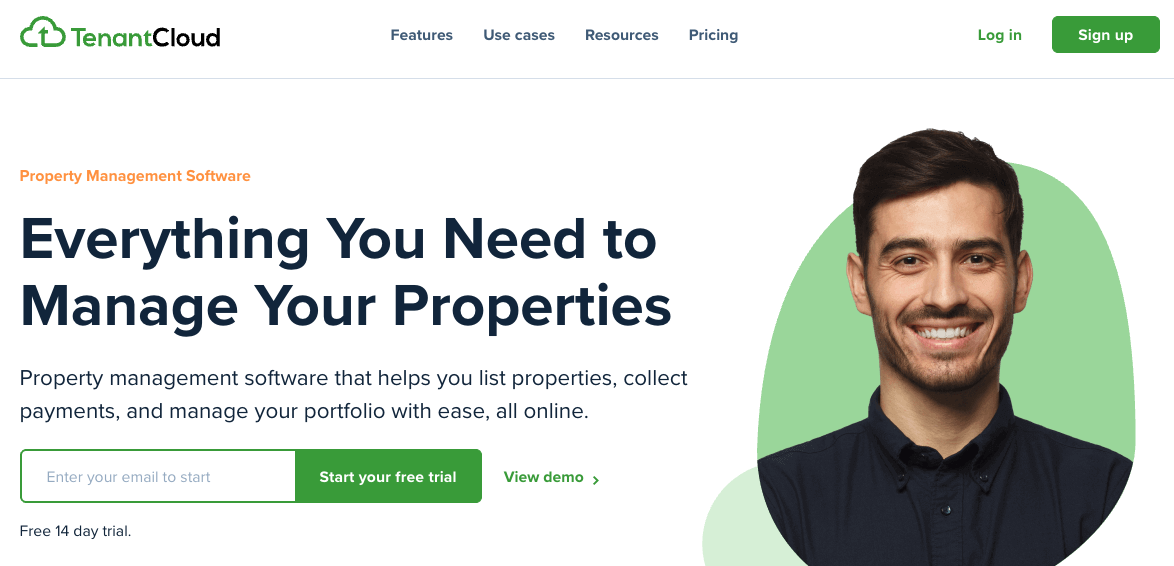
TenantCloud is a freemium platform geared toward landlords managing a mix of residential and commercial units. It offers essential property management features in an accessible layout, making it a good fit for newer or smaller portfolios.
Features include:
- Online rental applications and digital lease signing
- Income and expense tracking with built-in accounting tools
- Maintenance request portal for tenants
- Document storage and customizable lease templates
While not as specialized as other software solutions for commercial real estate, TenantCloud appeals to users who need a budget-friendly tool designed for basic lease management and tenant communication.
10. AppFolio
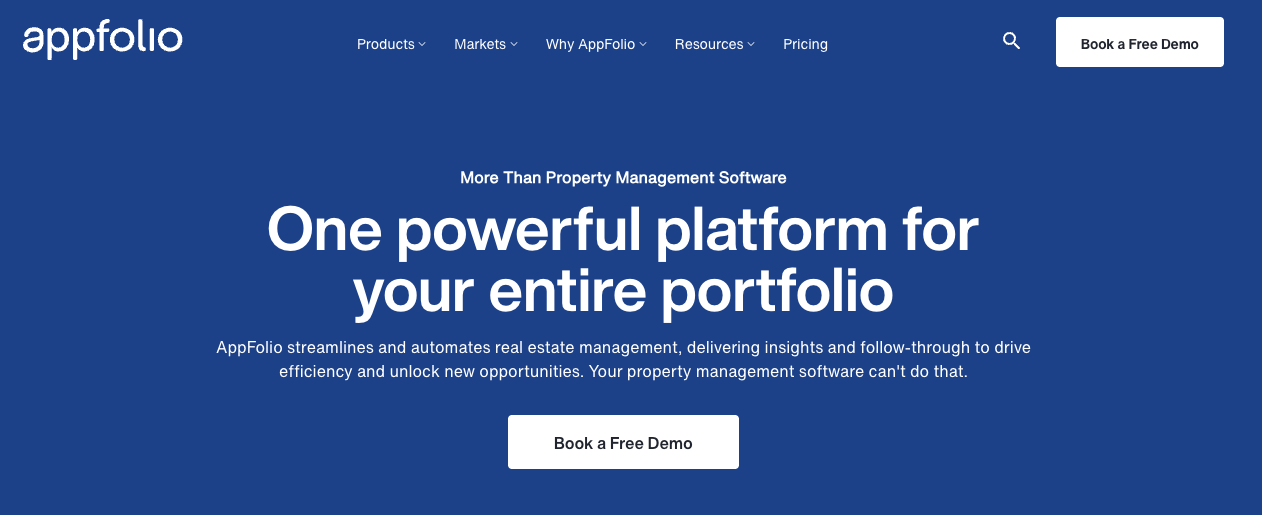
AppFolio is a popular choice among property managers due to its scalable capabilities and extensive residential and commercial property management feature set. It supports larger operations looking to centralize systems.
Key features:
- End-to-end lease lifecycle management
- AI leasing assistant and online rent payment automation
- Maintenance scheduling with vendor assignment tools
- Advanced features like real-time analytics and smart dashboards
AppFolio suits property managers seeking a comprehensive suite that handles everything from lease abstraction to tenant engagement, especially those managing an entire portfolio with residential and commercial units.
11. Innago
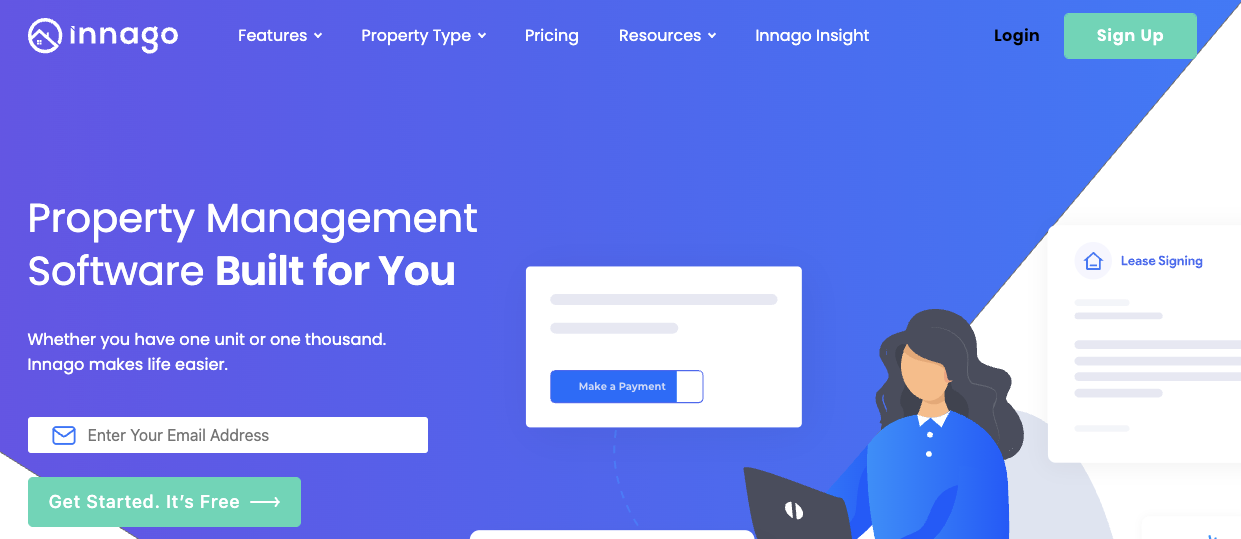
Innago is a lightweight property management software tool that’s usually recommended for independent landlords and small-scale property managers. While primarily known for residential use, it offers basic lease management features that extend to simpler commercial real estate needs.
Features include:
- Online lease creation and digital signature support
- Rent collection with automated late fees
- Expense tracking and basic financial reporting
- Maintenance request submissions from tenants
Innago is ideal for property managers who need a free, intuitive platform to manage leases and payments. It’s not built for complex commercial portfolios, but it works well for small teams that don’t require advanced features.
12. YardiBreeze
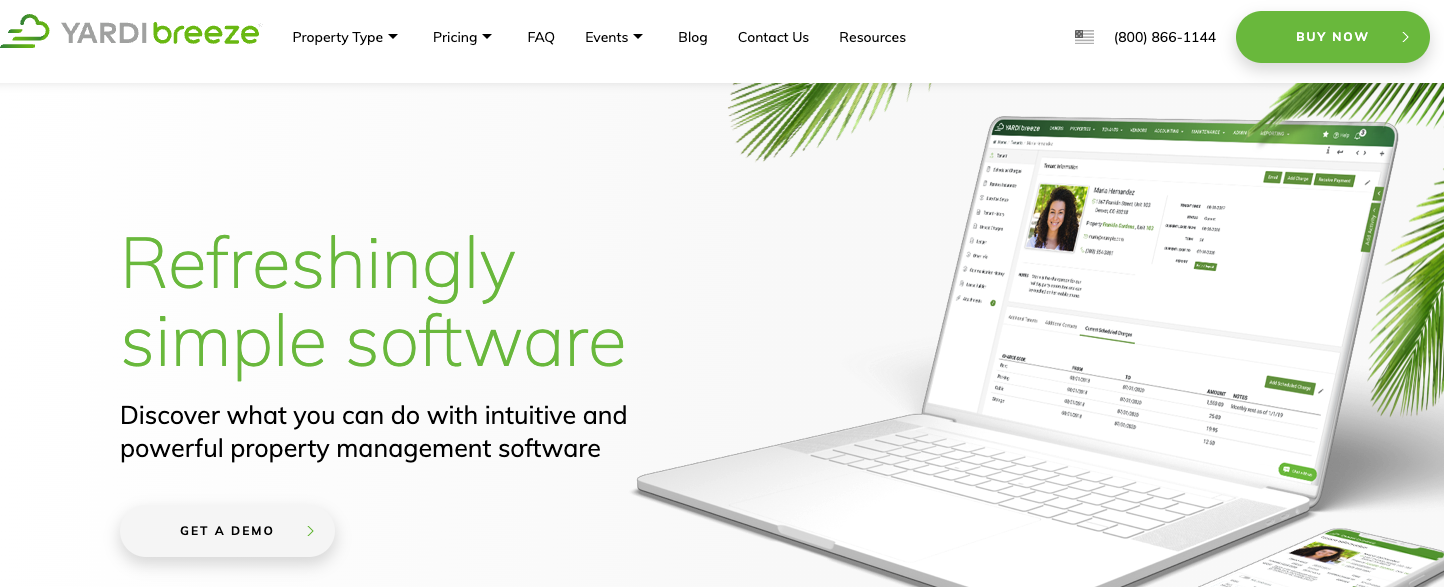
YardiBreeze is a streamlined version of Yardi’s enterprise platform, designed for property managers seeking commercial property management software with fewer layers of complexity. It offers essential features through an easy-to-navigate interface.
Features include:
- Lease tracking and built-in accounting tools
- Online applications, screening, and e-signatures
- Maintenance ticket tracking with tenant communications
- Real-time financial dashboards and flexible reporting
YardiBreeze fits managers of smaller commercial real estate portfolios who want the reliability of Yardi’s infrastructure in a tool designed for faster onboarding and day-to-day operational efficiency.
13. Workspace
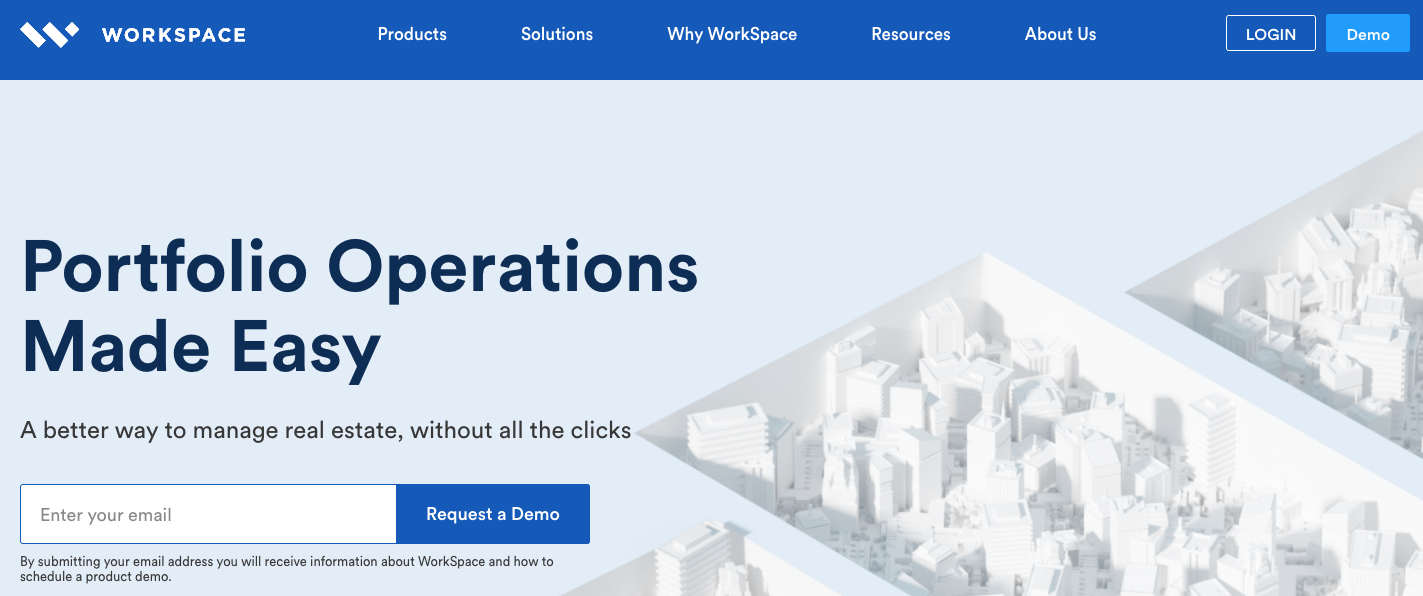
Workspace is a commercial real estate software explicitly built for coworking spaces, shared offices, and flexible workspace operators. Workspace is tailored to hybrid occupancy models and recurring tenant interactions, unlike other software solutions.
Features include:
- License and lease management for flex spaces
- Integrated CRM for member tracking and renewals
- Resource booking tools for desks, rooms, and equipment
- Billing automation and usage-based invoicing
Workspace stands out with market-specific features focused on shared commercial environments. It’s the right software for coworking operators seeking to improve tenant satisfaction and streamline space utilization.
14. BuildingEngines
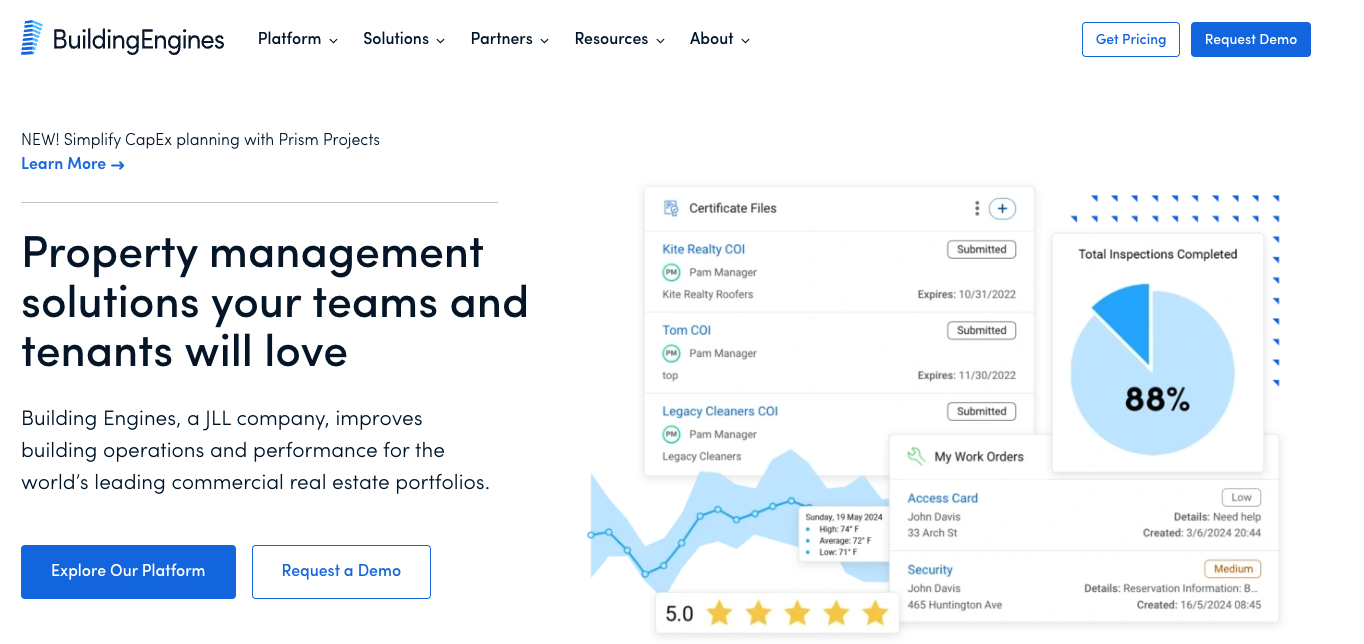
BuildingEngines is commercial property management software built specifically for large-scale portfolios, focusing on operations and tenant experience. It helps property managers track building performance, automate maintenance, and engage tenants more efficiently.
Features include:
- Preventive maintenance scheduling and inspections
- Work order tracking with mobile access
- Tenant experience tools, including feedback and communication portals
- Vendor compliance and risk mitigation workflows
BuildingEngines is best suited for property teams managing high-traffic commercial buildings. It prioritizes functional efficiency and integrates with broader real estate software systems to centralize performance data.
15. CRESSblue
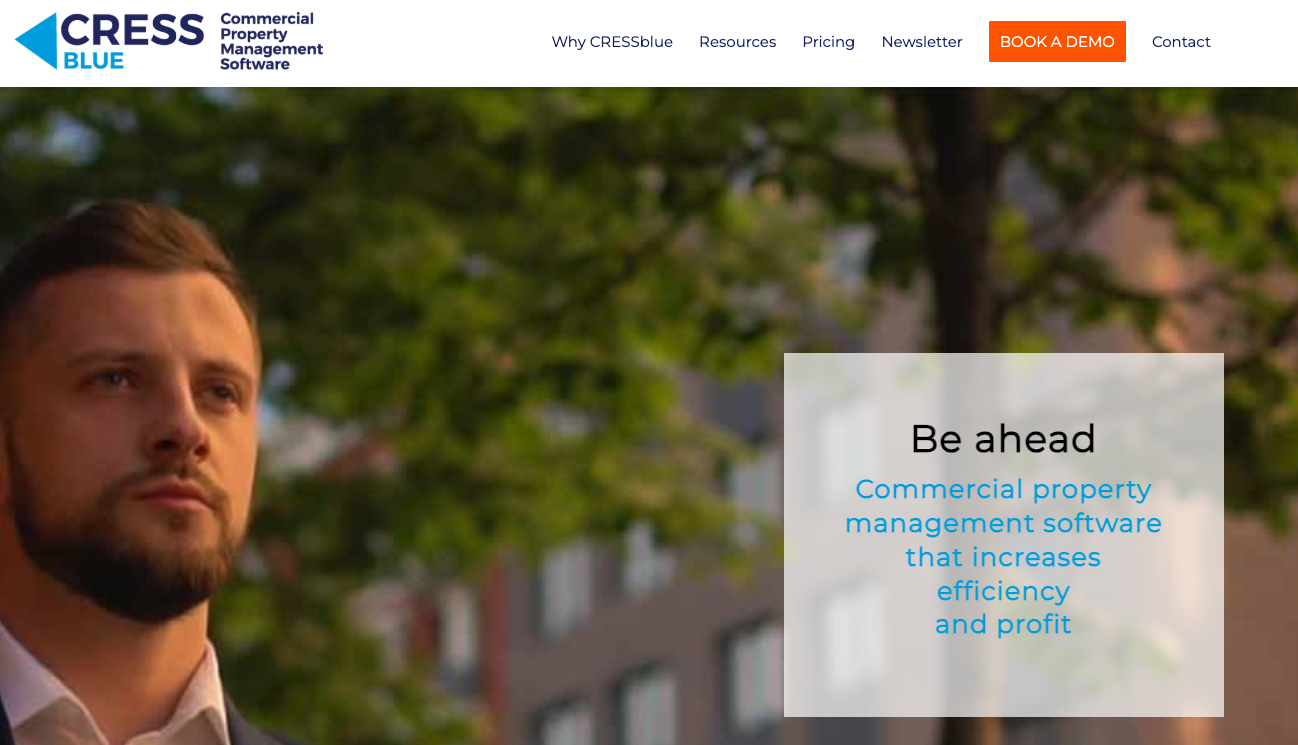
CRESSblue is a Canadian-based commercial property management software designed for asset owners, accountants, and property managers who need precise financial control. It’s built with a strong emphasis on commercial lease abstraction and accounting compliance.
Features include:
- Commercial lease management with clause-level tracking
- Full general ledger accounting and audit-ready reports
- CAM reconciliation and automated tenant billing
- Owner reporting and role-based permissions
This tool is ideal for firms looking for an accounting-forward solution with deep financial reporting. While not the most user-friendly interface, it offers accuracy and structure for complex portfolios.
16. Entrata
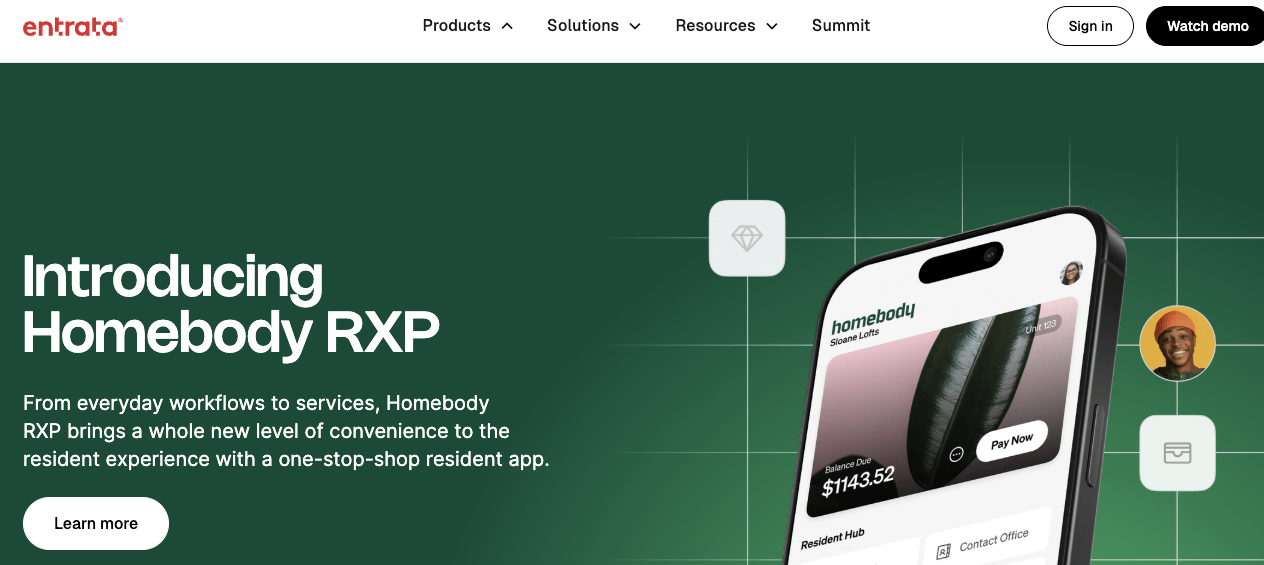
Entrata offers a comprehensive suite of property management tools, primarily used in residential, but expanding into mixed and light commercial property management. Its modular design allows teams to select only what they need.
Features include:
- CRM tools for lead-to-lease automation
- Online lease execution with document storage
- Resident portals for payments and maintenance requests
- Financial tools for budgeting and revenue tracking
Entrata appeals to property managers managing mixed-use properties or transitioning from residential to small-scale commercial management. Its modern interface supports operational consistency and tenant engagement.
17. Nakisa
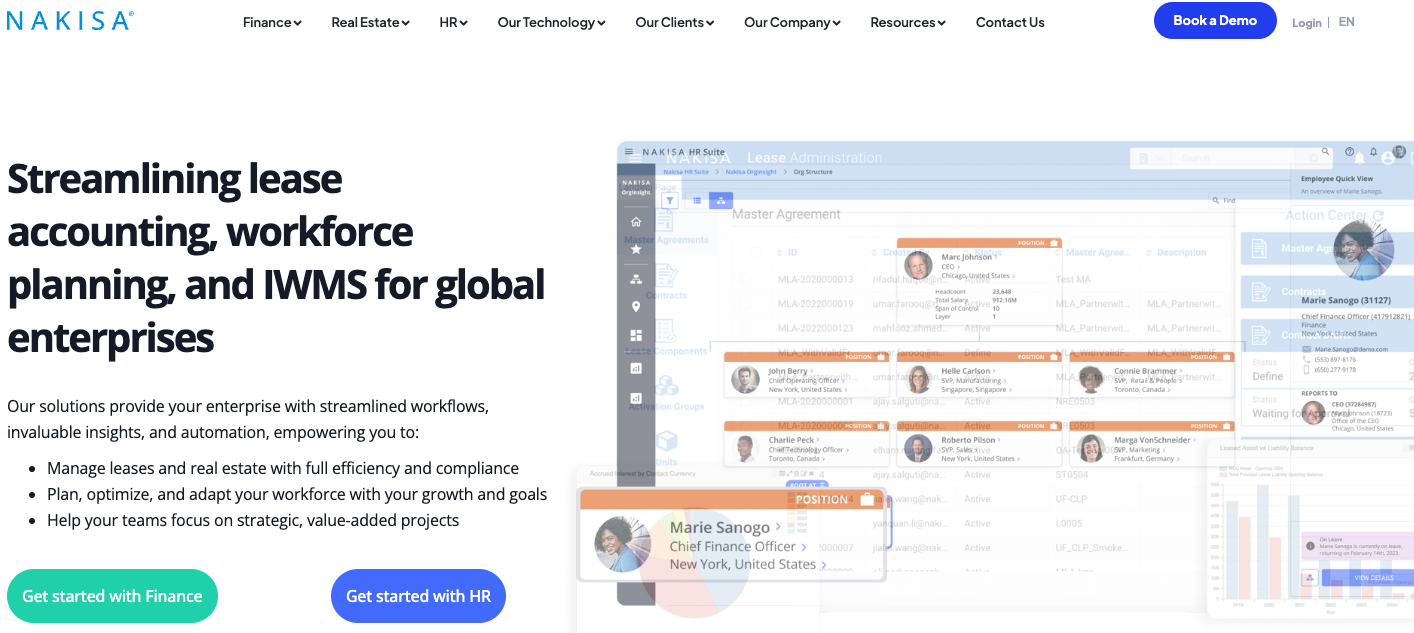
Nakisa delivers commercial real estate and lease accounting software focusing on compliance. It’s built for enterprises that manage lease portfolios across international markets and must meet complex financial standards like IFRS 16 or ASC 842.
Features include:
- Lease accounting automation and reporting
- Centralized lease data repository with audit trails
- Real-time compliance dashboards for finance teams
- Multi-entity and currency support
Nakisa is not a day-to-day operations platform for property managers but excels at supporting finance departments and controllers. It’s best for enterprise teams managing lease data and regulatory compliance at scale.
18. CBRE
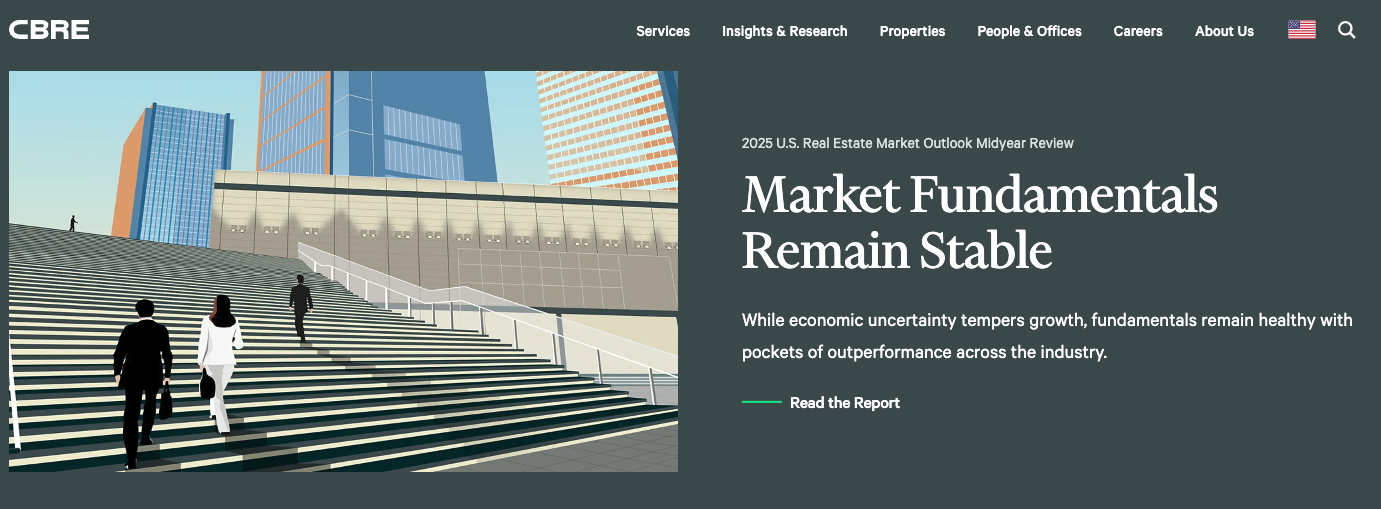
CBRE offers commercial property management software and services as part of its broader real estate platform. While best known as the largest global CRE services firm, CBRE provides tools and technology for asset managers seeking high-level oversight.
Features include:
- Portfolio analytics for lease performance and occupancy trends
- Maintenance scheduling and facilities task automation
- Real-time dashboards with financial, operational, and sustainability KPIs
- Integration with CBRE’s proprietary systems and third-party tools
CBRE is ideal for institutional landlords or enterprises needing an end-to-end platform that blends property management, financial oversight, and strategic advisory into one ecosystem.
How to Choose the Best Software for Managing Commercial Properties
Choosing the best commercial property management software starts with understanding what your team and workflows need.
Commercial property managers must manage lease tracking, tenant requests, financial audits, and long-term asset management. Any platform you consider should support that complexity without forcing workarounds or bloated processes.
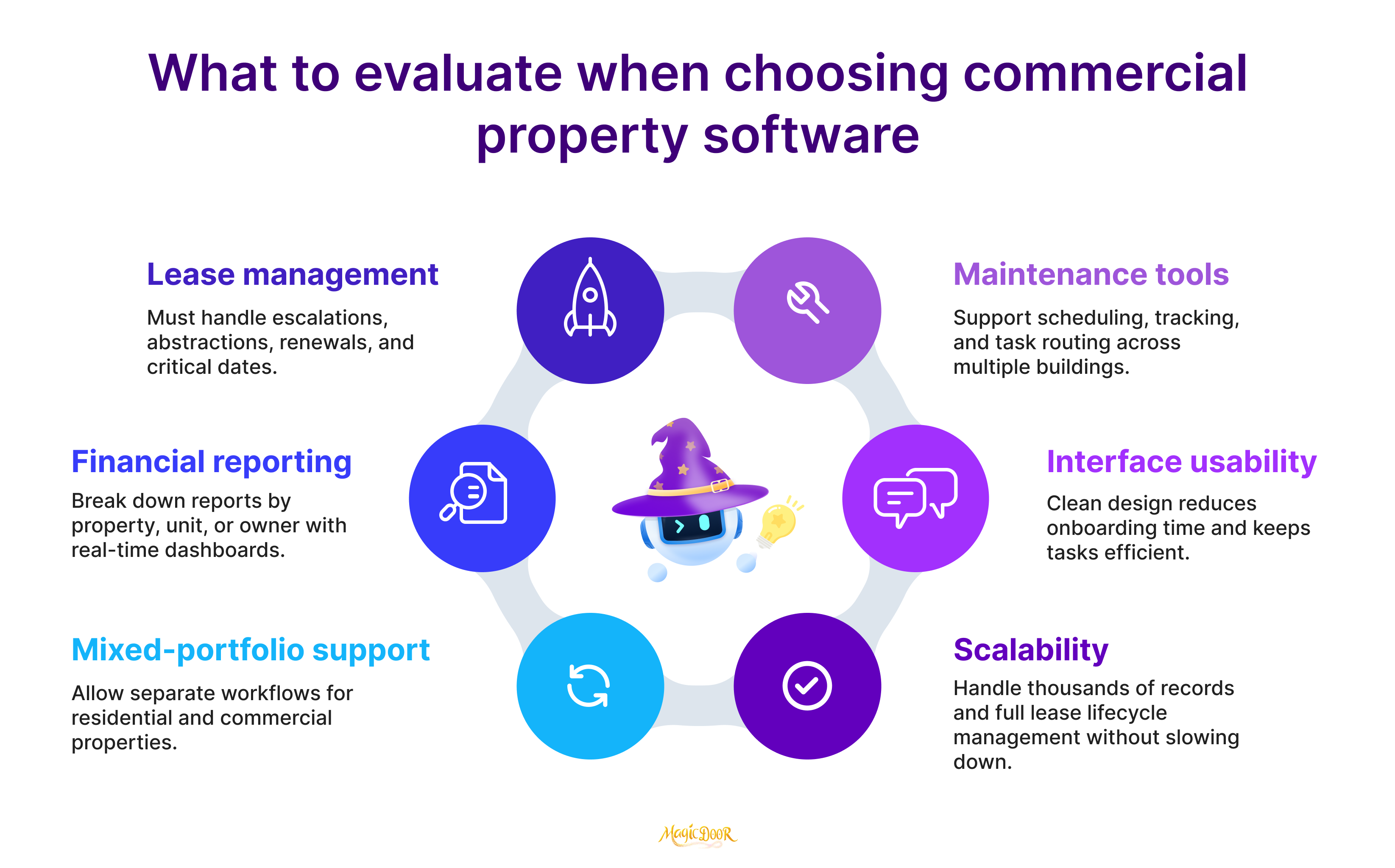
Start with the main features: lease management, maintenance scheduling, and financial reporting.
If you're managing commercial leases across office buildings, retail, or mixed-use portfolios, check how the platform handles lease abstraction, rent escalations, and critical dates. Tools that support automated workflows help avoid missed renewals or late notices.
For teams working on residential portfolios, too, confirm that the software solutions can separate logic and workflows between commercial property and residential property management software.
Look at reporting flexibility.
Can you break down financial tools by unit, property, or owner? Are there real-time reporting dashboards for owners or investors? Good tools surface detailed financial oversight without needing extra spreadsheet gymnastics.
Also, assess the interface. A cluttered dashboard slows onboarding and hurts adoption. Prioritize a user-friendly interface that makes everyday tasks simple, like:
- Navigating tenant management without digging through menus
- Submitting and reviewing maintenance requests in one tab
- Accessing accounting tools without separate logins
Scalability matters, too. If your commercial portfolios are growing, make sure the software can:
- Tailor workflows to different property types
- Support thousands of records without lag
- Handle full lifecycle lease management, from start to termination
You’re not just comparing feature lists. You’re vetting software solutions that eliminate context switching and improve asset performance with better data, better workflows, and fewer headaches.
Conclusion
From lease automation to financial dashboards, the top commercial property management tools in 2025 focus on flexibility, scale, and clarity.
MagicDoor is a lightweight, agentic AI-powered option designed for property managers who want fast execution and real results, without the overhead.
See how MagicDoor compares to the rest. Test it for your portfolio today.
Frequently Asked Questions
What is the best commercial property management software?
The best software depends on your portfolio size and workflow needs. For AI-powered automation and ease of use, MagicDoor is a strong option. Other tools like Yardi Voyager, MRI, and AppFolio serve enterprise needs as well.
What is CRE software?
CRE (Commercial Real Estate) software helps property managers oversee leases, maintenance, finances, and tenant communication across office, retail, or industrial buildings. It centralizes operations and supports complex lease structures like CAM and NNN.
What is the best CRM for property management?
CRMs like Entrata, Salesforce with CRE add-ons, and Buildium’s built-in CRM tools help manage tenant relationships, automate lease follow-ups, and streamline lead-to-lease workflows. For smaller teams, MagicDoor’s messaging dashboard acts as a lightweight CRM.
Who is the largest commercial property management company?
CBRE is currently the largest commercial property management company globally, managing billions in real estate assets across office, retail, industrial, and mixed-use sectors.
What are two types of CRE?
Two common types of commercial real estate are office buildings and retail spaces. Other CRE types include industrial properties, mixed-use developments, and multifamily assets over five units.

